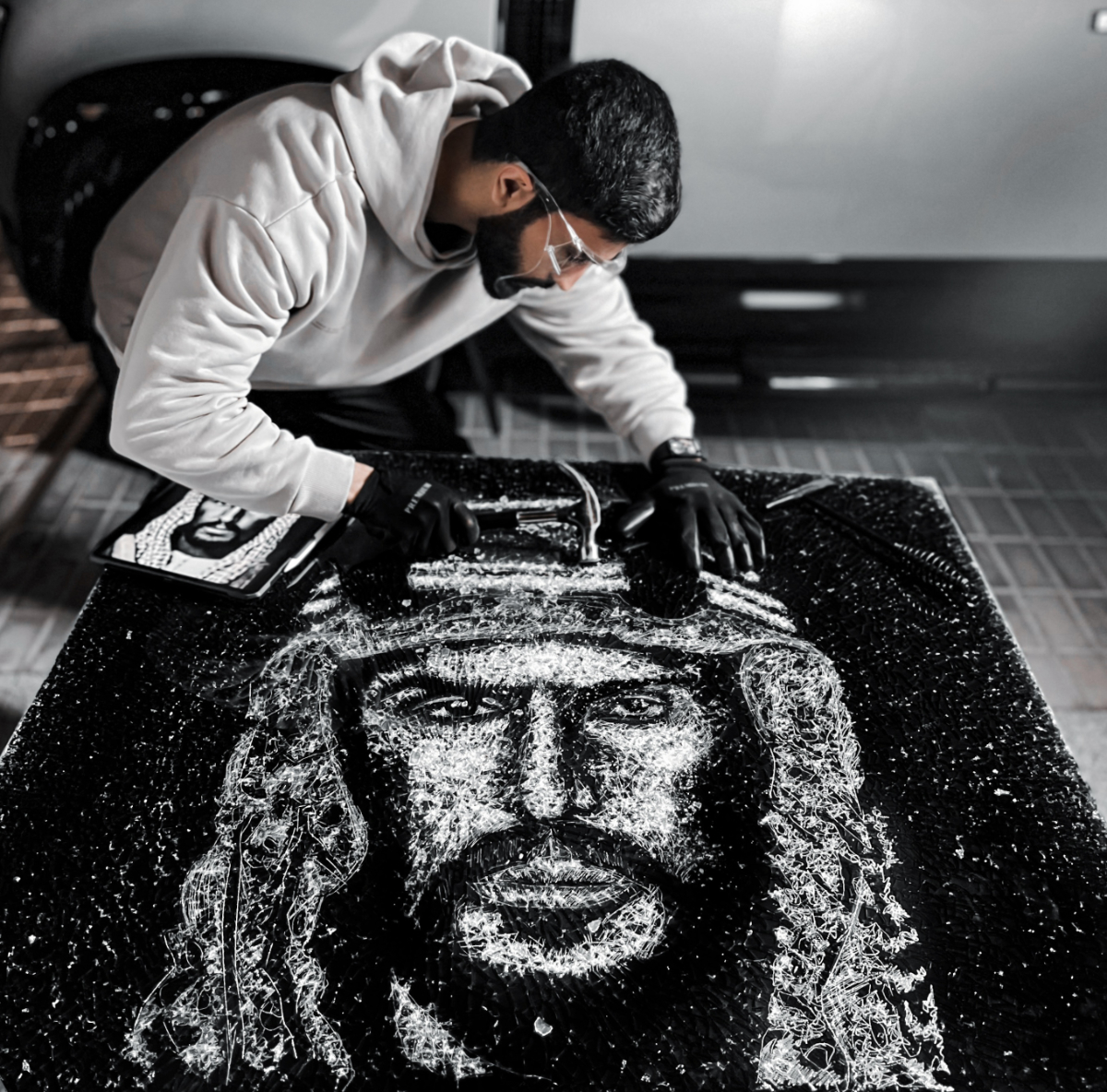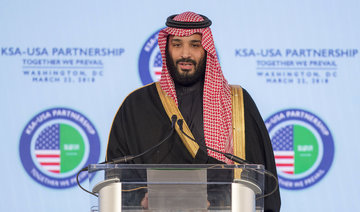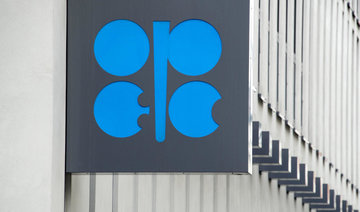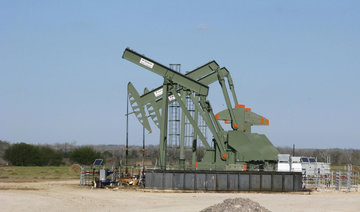NEW YORK: The potential deal between the Organization of the Petroleum Exporting Countries (OPEC) and Russia — announced by Crown Prince Mohammed bin Salman — is a game-changer in the global energy industry.
But it faces hurdles before it can be implemented and maintained according to the ambitious schedule outlined in New York.
Daniel Yergin, an energy expert and author of the Pulitzer Prize-winning history of oil “The Prize,” told Arab News that the possible deal “represents a realignment that reflects the new realities of oil and international relations.”
The crown prince said that the Kingdom and Russia were in talks to extend an agreement on output — sealed in Vienna in late 2016 on a temporary basis — to a longer-term pact of 10 to 20 years.
“We are working to shift from year-to-year agreement to a 10 to 20-year agreement. We have agreement on the big picture, but not yet on the detail,” the crown prince said.
If the deal goes through, it will put in place a new force in the global oil industry, with two of the top three producers, Saudi Arabia and Russia, acting in unison. With around 40 percent of the world’s output between the two producers and the rest of OPEC, the alliance would be a dominant force in the energy industry, able to control supply and — crucially — the price of oil for the next two decades.
But it is by no means a done deal. Ellen Wald, an expert on Saudi energy and author of the forthcoming book “Saudi Inc. The Arabian Kingdom’s Pursuit of Profit and Power,” said: “It would be impossible to extend the current production deal for 10 to 20 years because nobody knows what market conditions will be in the future.”
“What they must be referring to is a discussion on making Russia what amounts to a de facto OPEC member for a certain number of years,” she added.
But there are economic, financial and geopolitical challenges ahead before such a deal — likely to form the centerpiece of negotiations at the next OPEC meeting in Vienna in June — can be clinched.
The current arrangement — dubbed the “Vienna Alliance” by oil experts — has been credited with getting the price of crude back from the doldrums of 2014 and 2015. From a high of more than $100 a barrel after the global financial crisis, the price of a barrel of crude fell below $30 in early 2016.
The agreement on output helped stabilize that price last year, with a sustained recovery coming in the second half of the year as it looked as though the deal was going to hold longer than a few months. Brent crude was trading in New York yesterday close to the $70 a barrel level seen as the “Goldilocks” level — not too cheap and not too expensive — to balance the demands of global producers and consumers.
But the problem is that OPEC is not a cartel that can arbitrarily set the price of oil. It is an organization that has to serve the interests of its members, and the 14 nations — possibly increasing with the inclusion of Russia and other independent producers — that comprise OPEC are subject to the imperatives of their own domestic economic needs as well as the global market.
It has been an achievement — largely credited to Saudi Arabia’s Energy Minister Khalid Al-Falih — to get OPEC and Russian to coordinate supplies over the past 12 months. Maintaining that delicate relationship over decades would be much more difficult.
With global consumption just below 10 million barrels a day, it would only require one member to “go rogue” with a production surge to upset the delicate balance and cause another price collapse.
But perhaps the most serious barrier to any long-term deal is the fact that the global oil market is no longer a two-horse race. American shale producers have turned the international energy market on its head through sophisticated technology that has wrung oil from fields long regarded as impossible to exploit commercially.
The US is now the second largest oil producer, and with the shale industry in full boom, looks certain to overtake Russia and the world’s biggest sometime soon.
This is where the geopolitical challenge emerges. One American energy financier at the Saudi-US CEO Forum in New York explained: “It might be good for Saudi Arabia and the oil price, but it is a strategic play that might not go down well with American producers. It would add a long-term geopolitical element to the oil market that maybe we would not welcome.”
He also pointed to the difficulties of maintaining such a long-term relationship between OPEC and Russia. “There are so many variables. It is not just Saudi Arabia, but all the members of OPEC, which is a mixed bag. Is it in the interests of Venezuela or Iraq to go along with such a deal? And you cannot easily predict how Russia will be thinking in 10 weeks from now, let alone 10 years.”
Yergin said: “We’ve been calling this OPEC and non-OPEC agreement the ‘Vienna Alliance’. Now it looks like an effort to turn it into a lasting alliance.”
Challenges ahead as KSA looks to long-term OPEC-Russia oil deal
Challenges ahead as KSA looks to long-term OPEC-Russia oil deal

Saudi Arabia embassy resumes diplomatic activities in Afghanistan

- Saudi Arabia to 'provide all services to the brotherly Afghan people'
- Ties between Saudi Arabia and Afghanistan date back to 1932
RIYADH: The Saudi embassy in the Afghani capital, Kabul, resumed its diplomatic activities on Sunday.
"Based on the desire of the government of the Kingdom of Saudi Arabia to provide all services to the brotherly Afghan people, it has been decided to resume the activities of the mission of the Kingdom in Kabul starting on December 22," the embassy posted on X platform on Sunday.
Ties between Saudi Arabia and Afghanistan date back to 1932 when the Kingdom became the first Islamic country to provide aid to the Afghan people during their ordeals.
In recent years, Saudi Arabia launched numerous projects in Afghanistan through its humanitarian arm KSRelief, focusing on aid relief, health, education services, water and food security.
Riyadh also participated in all international donor conferences and called for establishing security and stability in Afghanistan following years of armed conflicts.
Saudi Arabia withdrew its diplomats from Kabul in August 2021 when the Taliban returned to power in Afghanistan following the US withdrawal from the country.
However, it said it was resuming consular services in the country in November 2021 and also provides humanitarian aid through its King Salman Relief Center organization.
Saudi delegation led by Royal Court advisor meets with Syria’s Al-Sharaa

- Earlier this week, Al-Sharaa praised progress made by Saudi Arabia
RIYADH: A Saudi delegation headed by an advisor from the Royal Court met with the head of the new Syrian administration, Ahmed Al-Sharaa, at the People’s Palace in Syria on Sunday, according to an Al Arabiya report.
Earlier this week, Al-Sharaa praised progress made by Saudi Arabia and neighboring Gulf countries in an interview with Asharq Al-Awsat.
“We admire the development in Gulf countries, particularly Saudi Arabia’s bold plans and vision, and we aspire to achieve similar progress for Syria,” he told the newspaper’s Bissane El-Cheikh during an interview the the Presidential Palace in Damascus.
“There are many opportunities for cooperation, especially in economic and developmental areas, where we can align our goals,” he added.
Shattering expectations: Saudi artist’s journey into glass art

- Aseel Al-Maghlouth breaks glass to break through in the local art scene
RIYADH: Saudi artist Aseel Al-Maghlouth is hammering a niche for himself by using glass as his canvas.
He stumbled upon the technique while working on his graduation project in mechanical engineering. “I discovered the potential to employ broken glass to create distinctive artistic designs,” he told Arab News.
The intricate details that appear when glass breaks inspired him to create shapes and visuals and developed a technique that reflected his artistic vision.

Al-Maghlouth had a love for drawing from a young age, but it was not until he discovered his ability to express ideas in unconventional ways that his true passion for art crystallized.
“I have always drawn inspiration from the surrounding nature and the intricate details of daily life,” he said. This connection to his environment, combined with his experiences in exploring artworks, helped shape his unique style.
He finds beauty in the mundane and translates that into his creations, often using glass to convey emotions and narratives that might resonate with viewers.
HIGHLIGHT
By embracing the fragility of glass and transforming it into something beautiful, Saudi artist Aseel Al-Maghlouth challenges perceptions of what art can be.
Al-Maghlouth has gained significant recognition on social media, where his works are widely admired.
This newfound fame has allowed him to sell his works and create custom pieces for clients, including various artists and celebrities. “Creating for such esteemed individuals is an honor, and it motivates me to push my artistic boundaries,” he said.

“The best work I own is the painting of Crown Prince Mohammed bin Salman. Frankly, I consider it the most valuable painting I have ever owned, but I refuse to sell it because it was a special gift from me to the crown prince,” he said.
“I have received many offers but I refuse to sell it. As for the rest of my paintings, I prefer not to mention the prices because the value of art for me is not limited to a number. Each painting has its own place and story that distinguishes it.”
One of the greatest challenges Al-Maghlouth faced as an artist was transforming his creations into messages that resonated with his audience. “The biggest challenge was ensuring that my art conveyed a clear idea,” he said.
I want to highlight the beauty of arts in our Saudi culture and connect it with Saudi Vision 2030.
Aseel Al-Maghlouth, Saudi artist
Through experimentation with the nature of glass fractures and the control of his technique, he minimized errors and created pieces that told meaningful stories.
Each strike of the hammer is deliberate, aimed at producing not just a fragment but a narrative that can be interpreted and appreciated by those who view it.
“I want to highlight the beauty of arts in our Saudi culture and connect it with Saudi Vision 2030,” he added, emphasizing the importance of cultural representation in his work.
Al-Maghlouth’s vision for the future is ambitious. He aspires to participate in international exhibitions, representing Saudi Arabia on a global stage. “I dream of organizing a personal exhibition in Riyadh to showcase my works and exchange inspiration with other artists,” he said.
For emerging artists, Al-Maghlouth has simple yet profound advice: “Don’t be afraid of trial and error. Each piece of art reflects a part of you.”
He encourages newcomers to continue developing and learning from every experience, and emphasizes the importance of perseverance in the face of challenges.
His journey is testament to the idea that creativity flourishes in an environment where risks are taken and failures viewed as stepping stones rather than obstacles.
Al-Maghlouth’s work serves as a reminder that art can emerge from the most unexpected materials and methods, encouraging others to explore their creativity without constraints.
By embracing the fragility of glass and transforming it into something beautiful, he challenges perceptions of what art can be.
Al-Maghlouth remains committed to honoring the stories behind each piece, proving that even the most broken fragments can come together to create something truly extraordinary.
Saudi Joint Forces commander meets Yemeni Presidential Leadership Council member for security cooperation talks

- Meeting focused on strengthening cooperation between Joint Forces Command and Yemeni Presidential Leadership Council
RIYADH: Lieut. Gen. Fahd bin Hamad Al-Salman, commander of the Joint Forces, met with Faraj Salmeen Al-Bahsani, member of the Yemeni Presidential Leadership Council, at the Joint Forces Command headquarters in Riyadh on Sunday.
The meeting focused on strengthening cooperation between the Joint Forces Command and the Yemeni Presidential Leadership Council, the Saudi Press Agency reported.
Discussions also centered on enhancing the ongoing support provided by Saudi Arabia through the Joint Forces to promote security and stability in Yemen.
During the reception, Al-Bahsani commended the Kingdom’s role in supporting Yemen’s efforts to achieve stability.
He emphasized the importance of continuing strategic cooperation between the two countries to address the challenges currently facing Yemen.
Al-Bahsani thanked the Saudi leadership for their unwavering support across various fields, noting that this collaboration plays a vital role in advancing stability in Yemen and the wider region, SPA reported.
The meeting underscored the Kingdom’s commitment to fostering peace and stability in Yemen as part of its broader efforts to address regional security challenges, SPA added.
Saudi justice minister announces comprehensive legal system development project

- The minister highlighted a range of training programs offered by the Judicial Training Center and Saudi Bar Association, targeting law graduates and practicing lawyers
RIYADH: The Ministry of Justice, in collaboration with the Saudi Bar Association, has announced the launch of a comprehensive project to review and develop the lawyers’ system, according to Saudi Justice Minister Walid Al-Samaani.
The project aims to strengthen the legal profession by empowering practitioners, improving access to legal services, and keeping up with the Kingdom’s legal, social and developmental advances, Al-Samaani, also chairman of the association, said.
On Sunday, Al-Samaani inaugurated the first Saudi Lawyers Conference in Riyadh, themed “Developments in the Lawyers and Legal Consultations Sector.”

With participation from government and private entities, the two-day conference focuses on the future of the legal profession within the Kingdom’s evolving legislative landscape.
It also highlights the significant impact of professional and educational developments on enhancing the local legal environment and fostering a vibrant business and investment climate.
About 30 experts and specialists are participating, leading discussions on various aspects of the profession. On Monday, 19 workshops will be held, led by specialists to enrich attendees’ knowledge and professional experience.
Al-Samaani said that the renewal of law licenses will be processed automatically and completed within 15 days of a complete application, aiming to empower and support lawyers.
He said that the demand for lawyers had grown significantly and would likely continue with the Kingdom’s expanding business landscape and ongoing developments.
“This growth is tied to strengthening institutional work, enhancing legal foundations, and developing model contracts, documentation systems and legislative tools,” he said.
The minister highlighted a range of training programs offered by the Judicial Training Center and Saudi Bar Association, targeting law graduates and practicing lawyers.
These programs combine practical and theoretical training, including the Lawyer Qualification Program, Lawyer Development Program, Saudi Professional Accreditation for Legal Practitioners, and Cooperative Training Program for university students, among others.






















